Seven Samurai, The / Magnificent Seven, The (1954)
“When you think you’re safe is precisely when you’re most vulnerable.”
|
Synopsis: |
|
Genres, Themes, Actors, and Directors:
Response to Peary s Review: Peary notes that the final battle — which “takes place in the day during a hard rain, with the men racing back and forth through the mud to block off the road into the village and to battle the horsemen who get through the lines” — is “one of the greatest action sequences in the history of cinema:” … but he adds that “since Kurosawa’s epic… is peerless as action-adventure, one tends to forget that it’s also a remarkably poignant human drama” — a “brilliant character study where we come to understand that each of the seven samurai takes part in the defense of the village for a personal reason.” Peary points out that “in addition to dealing with the samurai as individuals and as a group”: … “Kurosawa takes time to probe the nature of farmers, as individuals and as a group,” leading us to understand “that they are selfish, cruel, and cowardly” but have become that way due to, as Mifune’s character points out, “the looting, raping, enslaving samurai of Japan.” Peary writes that the “best known directorial element” of this “visual tour-de-force” is that “there is always movement within the frame”; indeed, it’s challenging to capture the film’s essence with stills for this very reason. Ultimately, it’s a movie that needs to be seen to be appreciated — and given how much has already been written about it by others, I humbly defer interested readers to any of the many links below, and/or the Criterion disc’s notable extras. Notable Performances, Qualities, and Moments: Must See? Categories
(Listed in 1001 Movies You Must See Before You Die) Links: |
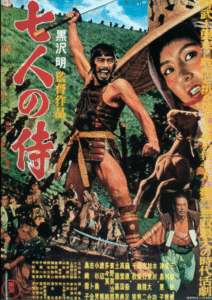

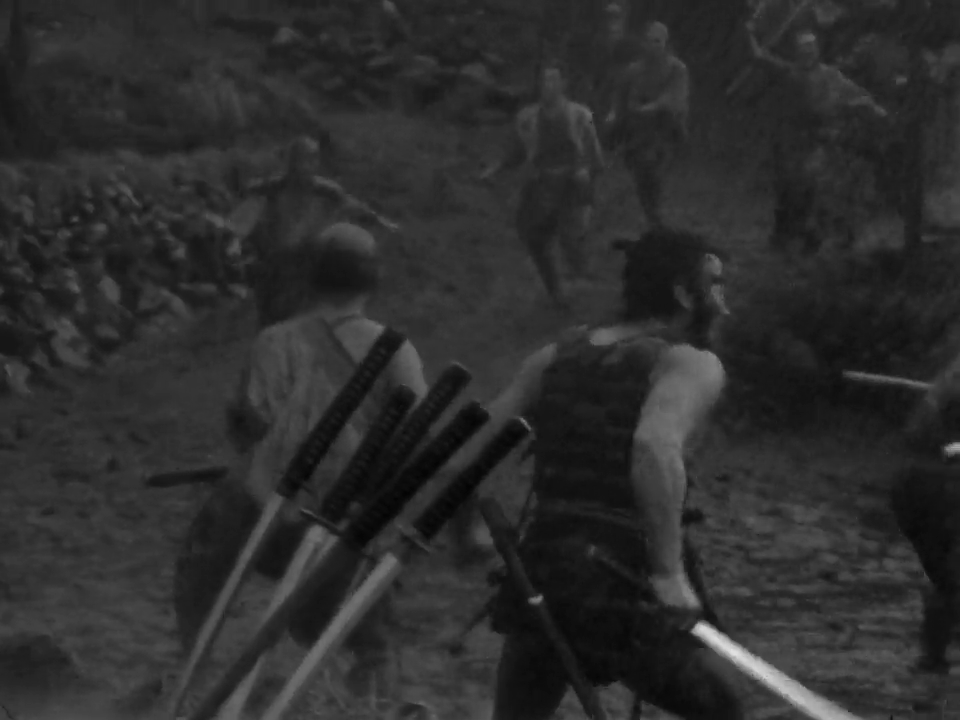
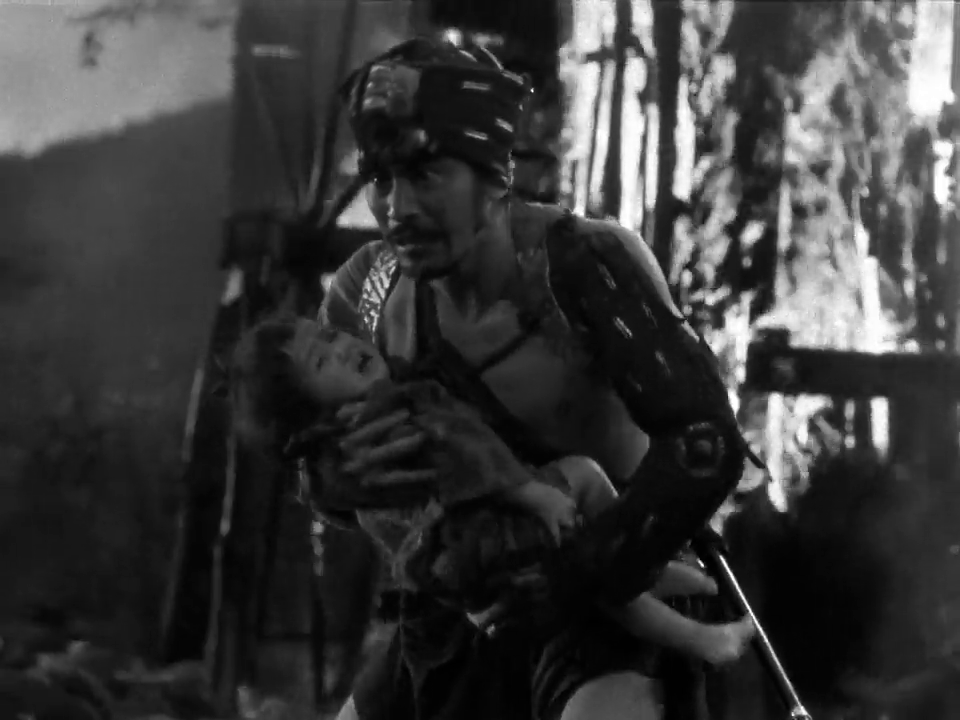
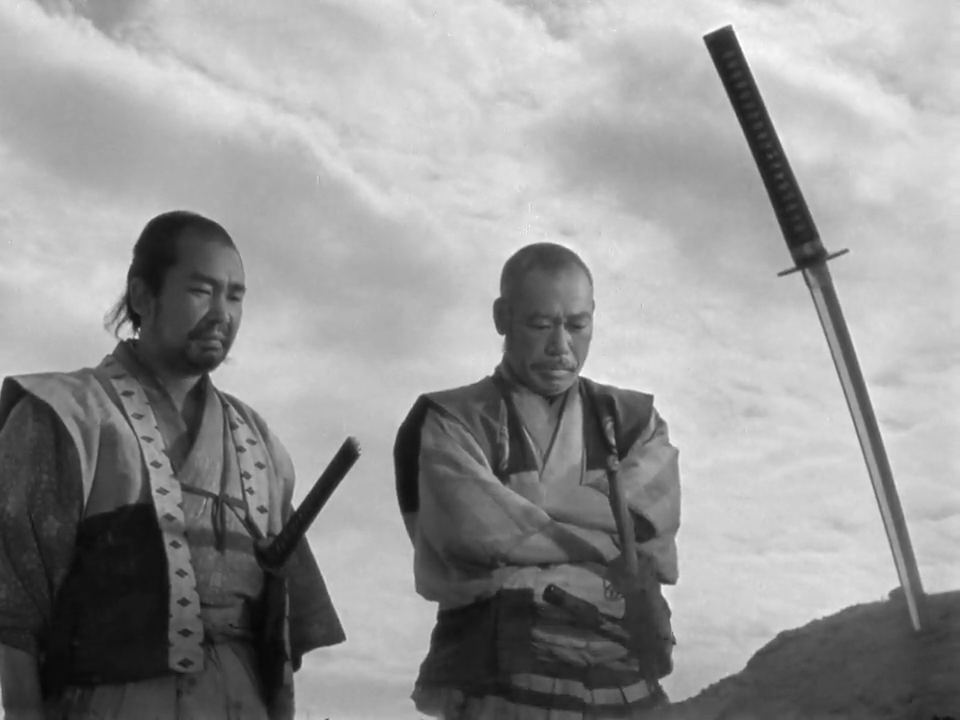

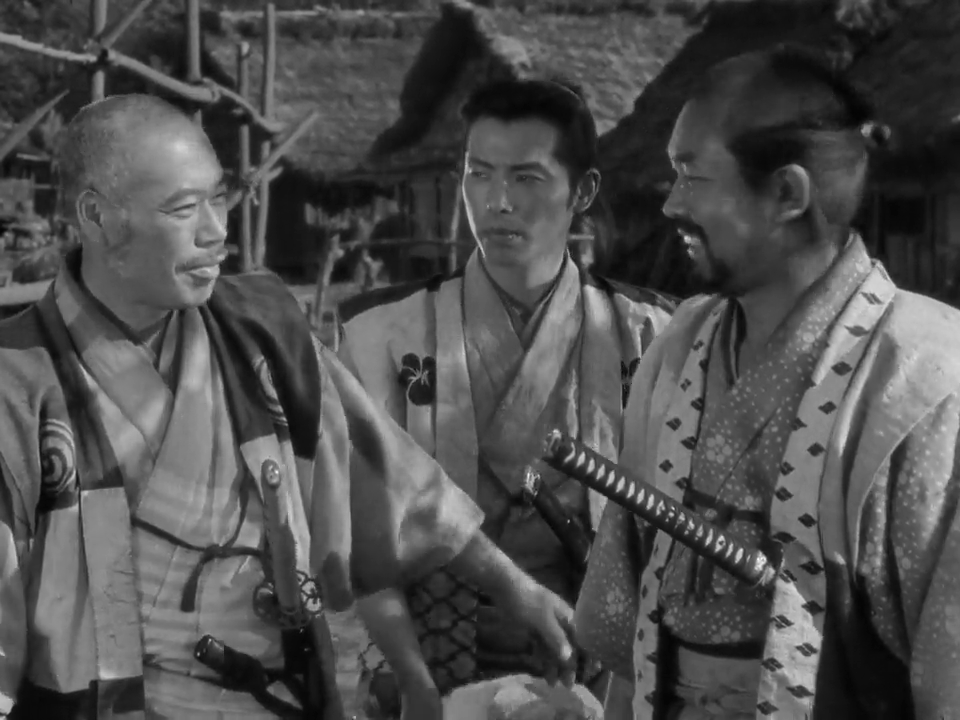
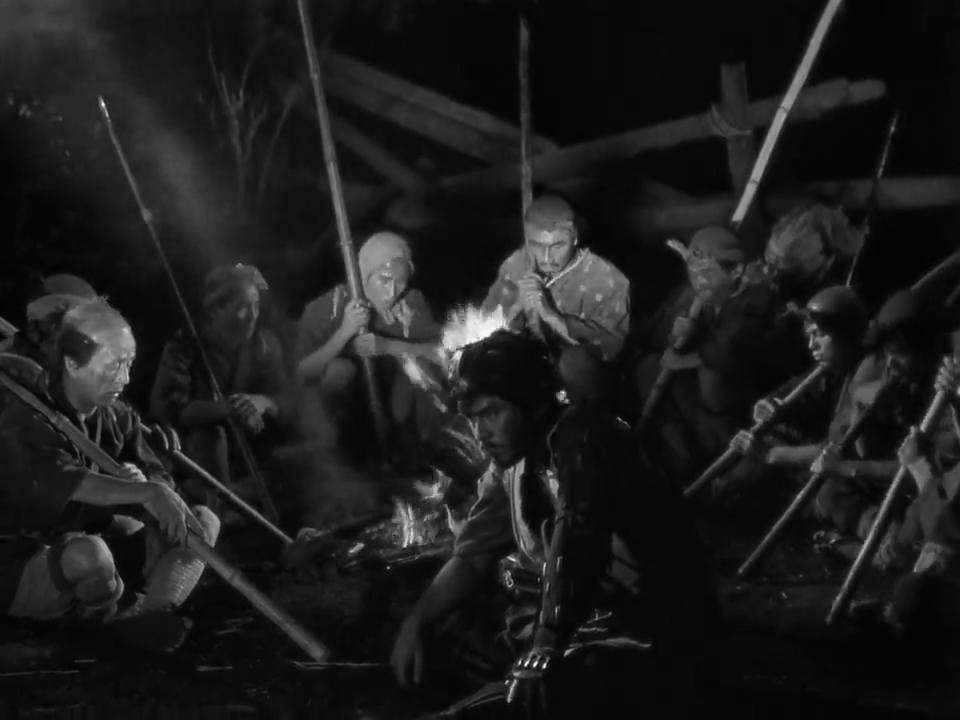
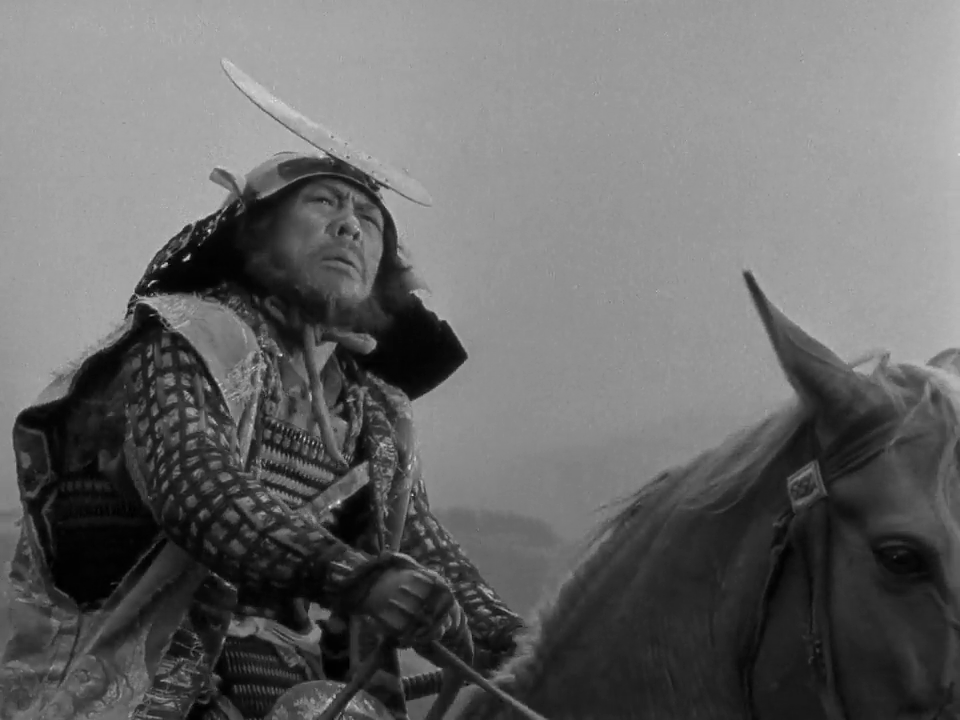
3 thoughts on “Seven Samurai, The / Magnificent Seven, The (1954)”
A no-brainer must-see – it benefits from repeat viewings and, indeed, is worthy of them.
If memory serves, this was the first Kurosawa film I saw – as a young teen, on a university campus. It must have been a packed house because I recall sitting rather close to the screen (something I don’t normally do as I prefer a better view of a film from sitting further back).
It’s an immensely rich experience and a deeply satisfying one. Kurosawa no doubt sensed he had a big story to tell and didn’t skimp on whatever was required to realize its full vision.
It’s a work that I have returned to from time to time over the years – and I never fail to notice that, for a 3 1/2-hour film, the time simply flies by.
Contained within are two of the best performances from both Mifune and Shimura (which is saying something since both actors turned in a number of memorable performances in Kurosawa films).
A wonderful movie. I loved The Magnificent Seven but this is so much deeper.
By the way, I thought you were going to compare the two as you mentioned the western in your title.
It would be interesting to do a comparison of the two!
In his book, Peary uses both titles – and when I looked it up in IMDb, I see this: